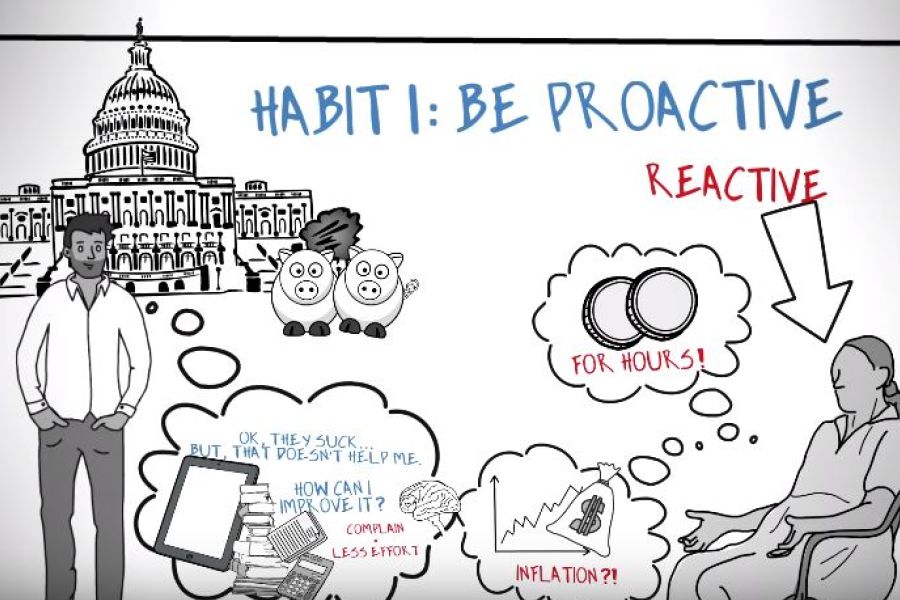As you likely know by now, the Tax Cuts and Jobs Act (TCJA) reduced or eliminated many deductions for individuals. One itemized deduction the TCJA kept intact is for investment interest expense. This is interest on debt used to buy assets held for investment, such as margin debt used to buy securities. But if you have investment interest expense, you can’t count on benefiting from the deduction. 3 hurdles There are a few hurdles you must pass to benefit from the investment interest deduction even if you have investment interest expense: You must itemize deductions. In the past this might not have been a hurdle, because you may have typically had enough itemized deductions to easily exceed the standard deduction. But the TCJA nearly doubled the standard...

Forensic accountants are best qualified to unearth the “hows and whys” of occupational fraud. But it’s up to employers to know when it’s time to call for professional help in the first place. The signs of fraud can be easy to miss, but they’re usually there. Something doesn’t belong Dishonest employees may use anything from fictitious vendors to false invoices to cover up theft. To ferret out potential fraud, look for such signs as: Duplicate payments, Out-of-sequence entries, Entries by employees who don’t usually make them, Unusual inventory adjustments, Accounts that don’t properly balance, and Transactions for amounts that appear too large or too small, or transactions that occur too often or too rarely. An increase in the number of complaints your company receives is another warning sign....
Commercial buildings and improvements generally are depreciated over 39 years, which essentially means you can deduct a portion of the cost every year over the depreciation period. (Land isn’t depreciable.) But special tax breaks that allow deductions to be taken more quickly are available for certain real estate investments. Some of these were enhanced by the Tax Cuts and Jobs Act (TCJA) and may provide a bigger benefit when you file your 2018 tax return. But there’s one break you might not be able to enjoy due to a drafting error in the TCJA. §179 expensing This allows you to deduct (rather than depreciate over a number of years) qualified improvement property — a definition expanded by the TCJA from qualified leasehold-improvement, restaurant and retail-improvement property. The TCJA...
As posted to the FightMediocrity YouTube Channel on 3/28/15 (Run time: 6 min, 42 sec) The 7 Habits of Highly Effective People, first published in 1989, is a business and self-help book written by Stephen Covey. Covey presents an approach to being effective in attaining goals by aligning oneself to what he calls "true north" principles based on a character ethic that he presents as universal and timeless. (Wikipedia 2/10/19) FightMediocrity is dedicated to fighting mediocrity through big ideas. The artist picks some of his favorite books in self-improvement and self-help that he has found useful on his personal development journey, animates them, and shares them with his audience....
Choosing the right executor — sometimes known as a “personal representative” — is critical to the smooth administration of an estate. Yet many people treat this decision as an afterthought. Given an executor’s many responsibilities and complex tasks, it pays to put some thought into the selection. Job description An executor’s duties may include: Collecting, protecting and taking inventory of the estate’s assets, Filing the estate’s tax returns and paying its taxes, Handling creditors’ claims and the estate’s claims against others, Making investment decisions, Distributing property to beneficiaries, and Liquidating assets if necessary. You don’t necessarily have to choose a professional executor or someone with legal or financial expertise. Often, lay people can handle the job, hiring professionals as needed (at the estate’s expense) to handle matters beyond...
A variety of tax-related limits affecting businesses are annually indexed for inflation, and many have gone up for 2019. Here’s a look at some that may affect you and your business. Deductions §179 expensing: Limit: $1.02 million (up from $1 million) Phaseout: $2.55 million (up from $2.5 million) Income-based phase-ins for certain limits on the §199A qualified business income deduction: Married filing jointly: $321,400-$421,400 (up from $315,000-$415,000) Married filing separately: $160,725-$210,725 (up from $157,500-$207,500) Other filers: $160,700-$210,700 (up from $157,500-$207,500) Retirement plans Employee contributions to 401(k) plans: $19,000 (up from $18,500) Catch-up contributions to 401(k) plans: $6,000 (no change) Employee contributions to SIMPLEs: $13,000 (up from $12,500) Catch-up contributions to SIMPLEs: $3,000 (no change) Combined employer/employee contributions to defined contribution plans (not including catch-ups): $56,000 (up from...
Deregulation of the energy industry was intended to give consumers a choice of electricity and natural gas providers — and an opportunity to save money. But many homeowners in deregulated states are receiving higher energy bills thanks to deceptive, and even fraudulent, door-to-door sales practices. Deception and fraud Not all states have deregulated. If yours has, you probably know it because you’ve received mailings, phone calls and sales rep visits from companies asking you to switch from your current provider. In most cases, traditional utilities continue to transmit the energy; the new providers, offering discounts and other incentives, deliver it to customers. Many such offers are legitimate and can potentially save you money. But others are deceptive, designed to get you to agree to switching without a full...
In this installment of Millennial Money, Robert Kiyosaki explains the three types of income . . . Earned Income Portfolio Income Passive Income . . . and which ones the rich work for. With perspectives on money and investing that often contradict conventional wisdom, Robert has earned an international reputation for straight talk, irreverence, and courage and has become a passionate and outspoken advocate for financial education. The "Millennial Money" series of videos seeks to provide young people with some important economic concepts that they didn't learn in school. Previous episodes of "Millennial Money" Blog #446 - How Debt Can Generate Income Blog #451 - The Biggest Mistake Young People Make Blog #456 - How to Convert a Liability into an Asset Blog #465 - Getting a Job is for Losers Robert Kiyosaki...
If you’re like many Americans, letters from your favorite charities have been appearing in your mailbox in recent weeks acknowledging your 2018 year-end donations. But what happens if you haven’t received such a letter — can you still claim an itemized deduction for the gift on your 2018 income tax return? It depends. Basic requirements To support a charitable deduction, you need to comply with IRS substantiation requirements. This generally includes obtaining a contemporaneous written acknowledgment from the charity stating the amount of the donation, whether you received any goods or services in consideration for the donation, and the value of any such goods or services. “Contemporaneous” means the earlier of: the date you file your tax return, or the extended due date of your return. So if you...
- 1
- 2
- 3
- 4
- 5
- 6
- 7
- 8
- 9
- 10
- 11
- 12
- 13
- 14
- 15
- 16
- 17
- 18
- 19
- 20
- 21
- 22
- 23
- 24
- 25
- 26
- 27
- 28
- 29
- 30
- 31
- 32
- 33
- 34
- 35
- 36
- 37
- 38
- 39
- 40
- 41
- 42
- 43
- 44
- 45
- 46
- 47
- 48
- 49
- 50
- 51
- 52
- 53
- 54
- 55
- 56
- 57
- 58
- 59
- 60
- 61
- 62
- 63
- 64
- 65
- 66
- 67
- 68
- 69
- 70
- 71
- 72
- 73
- 74
- 75
- 76
- 77
- 78
- 79
- 80
- 81
- 82
- 83
- 84
- 85
- 86
- 87
- 88
- 89
- 90
- 91
- 92
- 93
- 94
- 95
- 96
- 97
- 98
- 99
- 100
- 101
- 102
- 103
- 104
- 105
- 106
- 107
- 108
- 109
- 110
- 111
- 112
- 113
- 114
- 115
- 116
- 117
- 118
- 119
- 120
- 121
- 122
- 123
- 124
- 125
- 126
- 127
- 128
- 129
- 130
- 131
- 132
- 133
- 134
- 135
- 136











